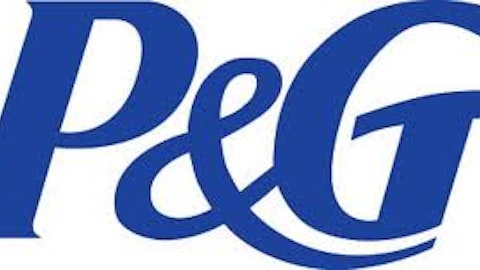
Hip device recalls, among other things, have hit the company’s publicity hard. J&J’s latest fiasco? The company warned physicians outside the U.S. last week of its Adept hip implant’s high failure rate that exceeded expectations; J&J told doctors to stop using the Adept and recalled all of the devices distributed abroad between 2004 and September 2011. So is that it for J&J’s most recent round of PR disaster — or should this mess make you think twice about this health care giant?
What’s the deal?
J&J first acquired the Adept hip implant, which uses a metal-on-metal surface, from British firm Finsbury Orthopaedics in 2009. Though J&J halted sales in 2011, 7,500 implants eventually spread abroad in 21 different countries, although none were sold in the U.S. A British database later found that 12% of implanted patients later needed follow-up procedures to repair the devices.
While the recall only involves the top part of the devices – J&J pointed out that a similarly named product called the Adept Hip Resurfacing Femoral Components was not recalled — the company doesn’t know just how many patients were fitted with the device.
What makes this situation so much worse than a simple recall is J&J’s recent track record of recalls and mishaps. The company’s ASR hip implants are perhaps its most infamous recalled product now, with 10,000 lawsuits revolving around the products. J&J subsidiary DePuy recalled 93,000 ASR implants back in 2010, and after an internal study in 2011 showed that up to 37% of the products failed within five years, things haven’t been going the company’s way.
Complicating things even more, the company’s faced suits over DePuy’s Pinnacle metal-on-metal hip implant that’s still on the market. Orthopedics just isn’t J&J’s cup of tea recently, and the shaky history won’t help in whatever develops from the Adept’s recall.
But just how much could this latest problem hurt Johnson & Johnson?
What it means to the company
On a purely legal standpoint, the settlements and cost of fighting potential suits may not be all that bad in context. Because the Adept’s recall affects overseas products rather than those sold on U.S. soil, it’s doubtful J&J will have to repeat shelling out the more than the $900 million it’s already spent fighting and settling suits over the ASR implant. With Adepts in question totaling less than a tenth the number of ASRs recalled, don’t expect the court ramifications to be anywhere near as bad with this development.
The real question is whether J&J will take a hit on its orthopedics revenue. Orthopedics sales made up more than 28.4% of the company’s total medical device and diagnostics revenue in 2012. Out of total company revenue, orthopedics made up more than 11.6%. That’s a sizable share for such a massive company (J&J’s 2012 sales of more than $67 billion underscores that fact), and any serious hit here could send investors into a panic.
The ASR recall mess’ hit on revenue has largely been covered up by J&J’s acquisition of Synthes, a move that boosted operational orthopedics sales growth to an astounding 36.2% last year. The Synthes purchase was good timing by J&J, but if further scrutiny over the company’s hip implants ends up in more recalls — particularly if they involve products already on the market, such as the aforementioned Pinnacle — watch out.




